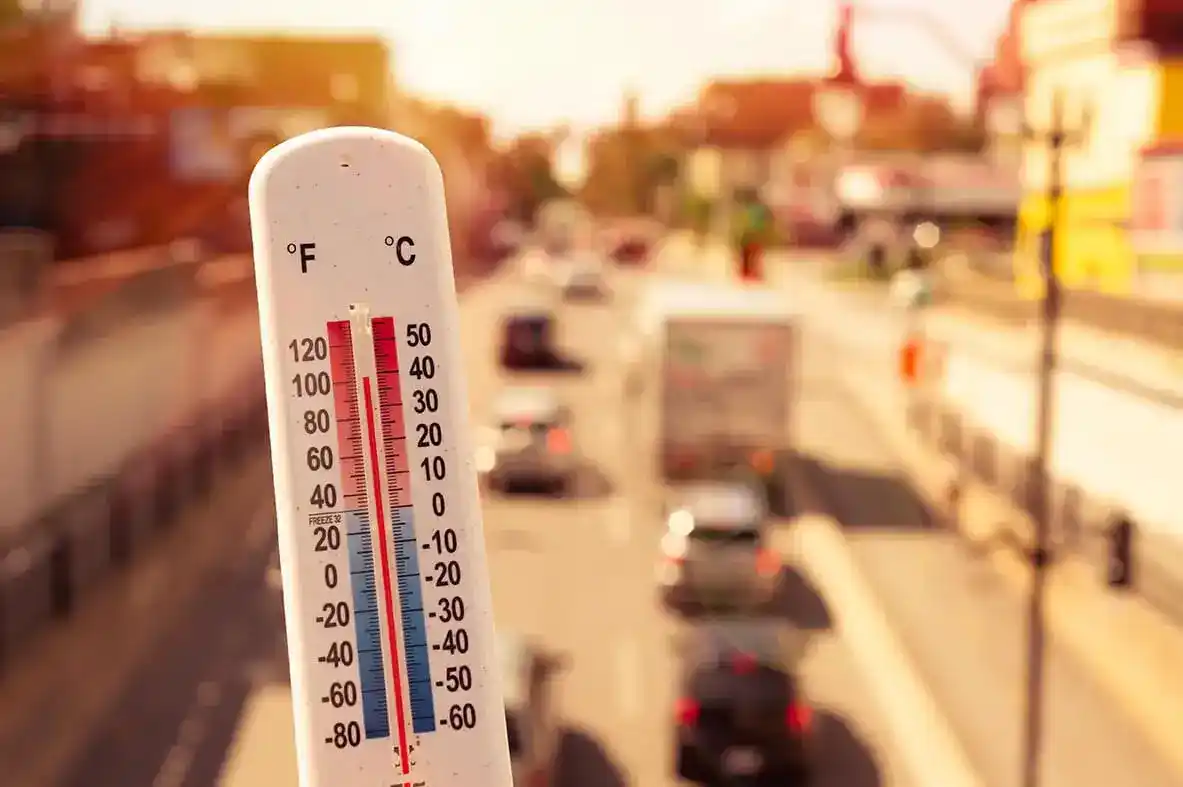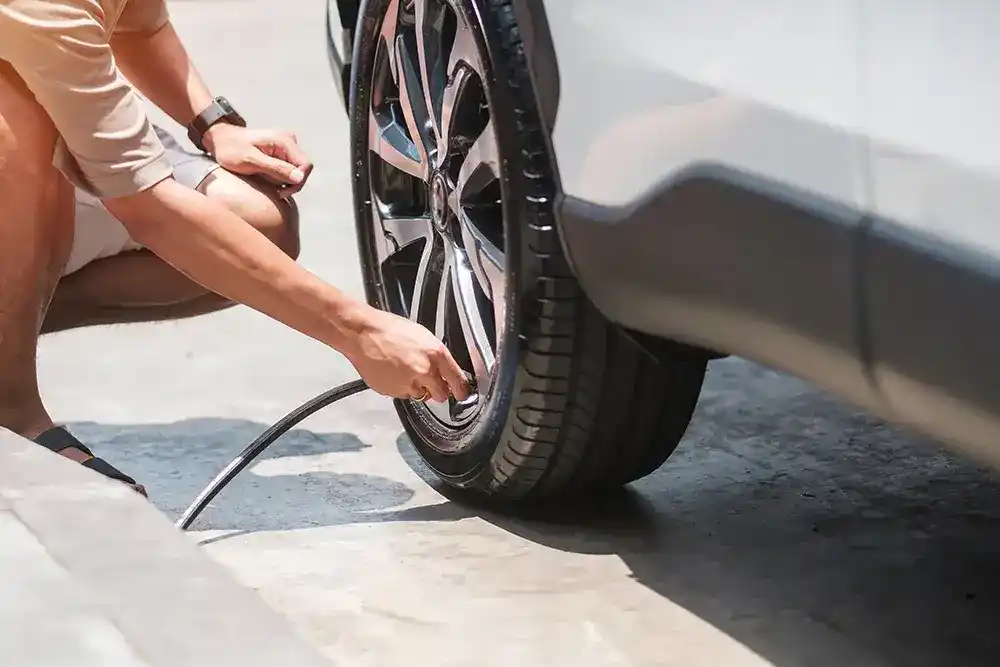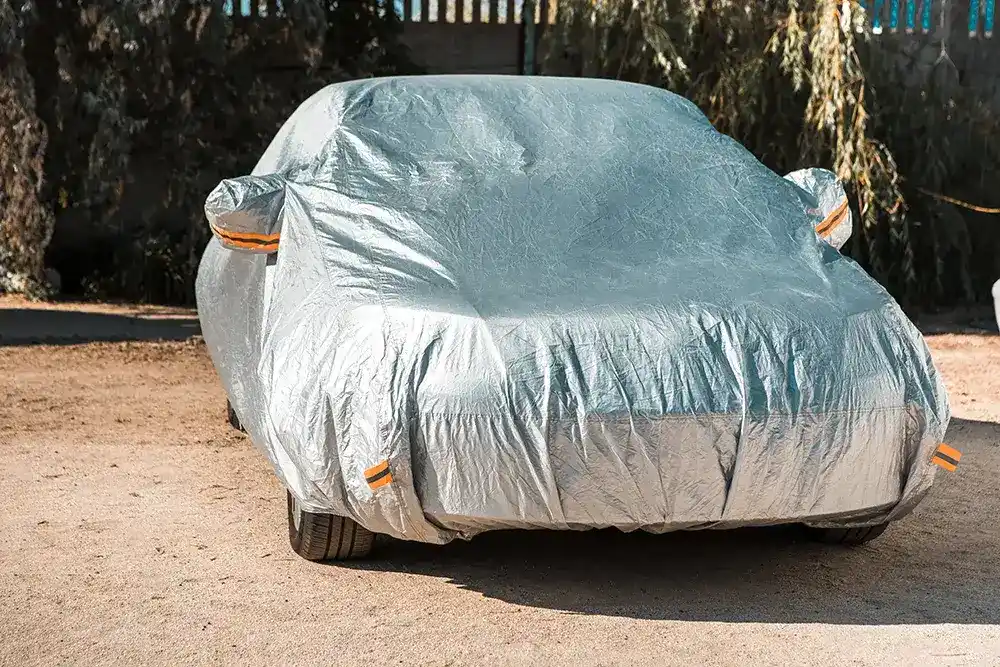How to prepare your car for hot weather?
16 Aug 2024

Just like homes in the hottest and most tropical regions of the world require additional maintenance, vehicles need a little more attention in hot weather. As temperatures continue to climb year-on-year, you may find yourself wondering what are the adverse effects of these warmer temperatures, and how to prepare your car for the heat.
If you’re new to driving in hot weather, some common car issues you may run into include:
- Overheating engine
- Increased stress on tyres
- Air conditioning issues
- Paintwork fading and cracks
To avoid any of the above, here are a few top tips to help you prepare your car for hot temperatures.
Check your engine oil
Engine oil reduces friction and wear between moving parts and always plays a vital role, regardless of the weather. However, this lubrication is even more important during a heatwave, as many factors can threaten your engine's health.
Firstly, intense heat causes engine oil to thin out, lowering its viscosity. This thin oil has difficulty forming a protective film on engine components, leading to increased friction and metal-on-metal contact.
Secondly, high temperatures can accelerate the breakdown and oxidation of engine oil. This process can thicken the oil and create sludge, further reducing lubrication and potentially clogging oil passages that deliver oil to vital engine parts.
Last but not least, hot weather puts extra strain on your engine. With the need to maintain proper cooling amidst scorching temperatures, the engine works harder, generating more heat and requiring even more effective lubrication.
By checking your engine oil level and viscosity during a heatwave, you can make sure there's enough oil to compensate for thinning and replace degraded oil. This safeguards your engine from excessive wear and tear, minimising the risk of overheating and potential breakdowns.

Maintaining fluids and cooling system
Your car already has several systems in place to protect against rising temperatures. Keeping these well-maintained is a surefire way to improve the health and performance of your vehicle in the summer months.
Coolant
When your engine is running, heat is generated by the process of burning fuel. Coolant is an essential vehicle fluid that flows through the engine block to draw heat away from vital components and prevent overheating.
Therefore, checking and topping your coolant levels is one of the best things you can do to ensure your engine stays adequately cool, despite the outside air temperature. You may also want to perform a coolant flush before the summer starts – check your vehicle manual for instructions.
Radiator
The radiator forms an essential part of the cooling system, dissipating heat from the coolant which has flowed through the engine. You should regularly check your radiator for leaks, clogs or damage to protect against unexpected cooling system failures, which can result in an overheated engine.
Here are some easy ways to check your car radiator for leaks, clogs or damage:
- Park your car on a level surface in a location where it is safe to do so, and let the engine cool completely. Open the hood and look for any visible signs of coolant leaks around the radiator, hoses, and connections. Coolant is usually green, yellow, or orange.
- If your car's engine is overheating, it could be a clogged radiator. The temperature gauge on your dashboard will typically indicate this by moving towards the red zone.
- Look for any dents, cracks, or bends in the radiator fins. These can be caused by road debris or collisions. A damaged radiator may not cool your engine efficiently.
Safety First!
Always let the engine cool completely before checking the radiator and never remove the radiator cap from a hot engine. The coolant can be scalding hot and could cause serious burns.
If you suspect a leak, clog, or damage to your radiator, it's important to get it checked out by a mechanic as soon as possible.
Fluids and lubricants
Along with coolant, engine oil also prevents engine overheating by reducing friction between various moving parts. Just as you regularly check coolant levels, you should keep an eye on your engine oil and top it up as necessary.
Hot weather can also put an extra strain on other things like windshield washer fluid and power steering fluid.
Here’s a checklist to help you monitor all of the fluids in your vehicle you should monitor in hotter weather:
- Motor Oil
- Coolant
- Brake Fluid
- Washer Fluid
- Power steering fluid

Tyre care and pressure
Gleaming hot tarmac spells trouble for your tyres. Despite a natural heat resistance, rubber tyres are not immune to hot temperatures, and can wear out prematurely or even burst in extreme circumstances.
If your car has winter tyres, you may want to swap them for summer ones as the weather heats up. When doing so, you can also switch the front and rear tyres to help reduce wear and tear (as the back tyres wear quicker as they are used more in braking).
Monitoring tyre pressure
Hot weather raises the pressure in your tyres because hot air expands while cool air contracts. Overinflated tyres can affect a range of other essential systems, from handling to braking, reducing traction on the roads and potentially resulting in an accident.
During any spells of hot weather, be sure to keep an eye on your tyre pressure and release some air if you find it is too high. Once cool, you can reinflate to the manufacturer’s recommended levels.
Checking for wear
If your tyres have existing wear, hot weather can exacerbate the damage. High temperatures will generally wear down treads faster, so you should check the tread depth regularly to ensure yours hasn’t fallen below the legal standards.
While you’re at it, inspect your tyres for cracks, bulges and uneven wear, and replace them if necessary.

General maintenance
Along with checking essential systems, components, and tyres, there are a few additional things you can do to make sure your car stays safe, healthy and comfortable in hot conditions.
Air conditioning
Is there anything worse than a stifling hot car in the heat of summer? Making sure your air conditioning is fully functioning is something you should do proactively, to avoid an issue when you need it most.
Get your A/C serviced before the weather starts warming up to keep you cool through the summer. Your system may need ‘regassing’ for optimum cooling performance, which is a simple and affordable task performed by a qualified mechanic.
Keep your car cool
One of the most obvious ways to protect your car in hot weather is simply keeping it as cool as possible. This includes things like parking in the shade and staying off the roads during the searing heat of the day.
If you want to go the extra mile, you can also invest in a reflective car cover to shield your vehicle from the sun’s harsh rays. This not only keeps the interior cooler and more comfortable but also protects the paintwork from premature fading.
Preparing your car for hot weather is simple when you know how. By following the maintenance tips above, you can protect your vehicle from rising temperatures, prevent costly repairs and extend its lifespan.

